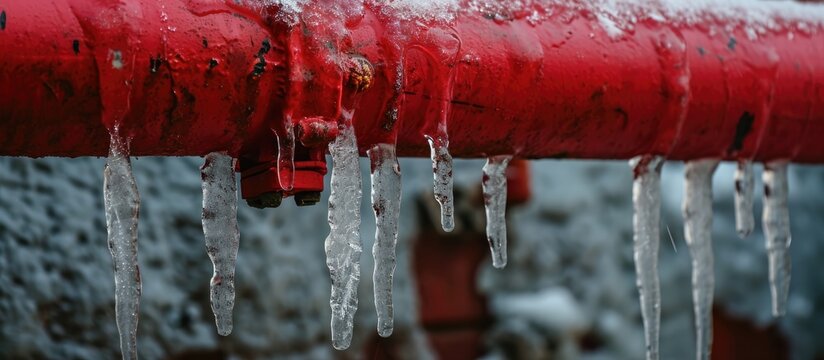Avoiding Frozen Plumbing in Cold Weather: Essential Advice
Call TodayWe've discovered this great article involving Preventing and dealing with frozen pipes below on the web and figured it made sense to discuss it with you over here.

Winter can damage your plumbing, especially by freezing pipelines. Right here's just how to avoid it from occurring and what to do if it does.
Introduction
As temperatures decrease, the risk of icy pipelines boosts, potentially causing pricey fixings and water damages. Recognizing how to prevent frozen pipes is important for home owners in chilly climates.
Avoidance Tips
Protecting at risk pipes
Wrap pipelines in insulation sleeves or make use of heat tape to protect them from freezing temperatures. Focus on pipelines in unheated or external areas of the home.
Heating methods
Keep interior spaces effectively heated, especially locations with plumbing. Open closet doors to permit cozy air to circulate around pipes under sinks.
Just how to determine icy pipes
Seek lowered water flow from taps, unusual odors or sounds from pipes, and noticeable frost on revealed pipes.
Long-Term Solutions
Structural changes
Consider rerouting pipelines away from outside walls or unheated locations. Include added insulation to attic rooms, basements, and crawl spaces.
Updating insulation
Buy high-grade insulation for pipes, attics, and wall surfaces. Appropriate insulation helps maintain regular temperature levels and lowers the risk of frozen pipes.
Protecting Exterior Plumbing
Garden pipes and outdoor taps
Detach and drain yard pipes before wintertime. Install frost-proof faucets or cover outside faucets with insulated caps.
Comprehending Frozen Pipelines
What causes pipes to ice up?
Pipes freeze when exposed to temperatures listed below 32 ° F (0 ° C) for prolonged periods. As water inside the pipes ices up, it expands, putting pressure on the pipe walls and potentially triggering them to break.
Threats and problems
Icy pipelines can result in water supply disturbances, residential or commercial property damages, and expensive repairs. Ruptured pipelines can flood homes and trigger extensive architectural damage.
Indicators of Frozen Pipeline
Determining icy pipelines early can prevent them from rupturing.
What to Do If Your Pipelines Freeze
Immediate activities to take
If you suspect frozen pipes, maintain taps open up to alleviate stress as the ice melts. Utilize a hairdryer or towels soaked in warm water to thaw pipelines gradually.
Final thought
Protecting against icy pipes requires aggressive steps and quick reactions. By comprehending the causes, signs, and preventive measures, home owners can secure their plumbing throughout cold weather.
Helpful Tips to Prevent Frozen Pipes this Winter
UNDERSTANDING THE BASICS: WHY PIPES FREEZE AND WHY IT’S A PROBLEM
Water freezing inside pipes is common during the winter months, but understanding why pipes freeze, and the potential problems it can cause is crucial in preventing such incidents. This section will delve into the basics of why pipes freeze and the associated problems that may arise.
THE SCIENCE BEHIND FROZEN PIPES
When water reaches freezing temperatures, it undergoes a physical transformation and solidifies into ice. This expansion of water as it freezes is the primary reason pipes can burst. As the water inside the pipe freezes, it expands, creating immense pressure on the walls. If the pressure becomes too great, the pipe can crack or rupture, leading to leaks and water damage.
FACTORS THAT CONTRIBUTE TO PIPE FREEZING
Low Temperatures: Extremely cold weather, especially below freezing, increases the risk of pipes freezing. Uninsulated or Poorly Insulated Pipes: Pipes located in unheated areas, such as basements, crawl spaces, or attics, are more prone to freezing. Insufficient insulation or lack of insulation altogether exacerbates the problem. Exterior Wall Exposure: Pipes running along exterior walls are susceptible to freezing as they encounter colder temperatures outside. Lack of Heating or Temperature Regulation: Inadequate heating or inconsistent temperature control in your home can contribute to frozen pipes. PROBLEMS CAUSED BY FROZEN PIPES
- Pipe Bursting: As mentioned earlier, the expansion of water as it freezes can cause pipes to burst, resulting in significant water damage.
- Water Damage: When pipes burst, it can lead to flooding and water damage to your property, including walls, ceilings, flooring, and personal belongings.
- Structural Damage: Prolonged exposure to water from burst pipes can compromise the structural integrity of your home, leading to costly repairs.
- Mold and Mildew Growth: Excess moisture from water damage can create a favorable environment for mold and mildew growth, posing health risks to occupants.
- Disrupted Water Supply: Frozen pipes can also result in a complete or partial loss of water supply until the issue is resolved.
WHY CERTAIN PIPES ARE MORE PRONE TO FREEZING
- Location: Pipes located in unheated or poorly insulated areas, such as basements, crawl spaces, attics, or exterior walls, are at higher risk of freezing.
- Exterior Pipes: Outdoor pipes, such as those used for irrigation or exposed plumbing, are particularly vulnerable to freezing as they are directly exposed to the elements.
- Supply Lines: Pipes that carry water from the main water supply into your home, including the main water line, are critical to protect as freezing in these lines can affect your entire plumbing system.
- Underground Pipes: Pipes buried underground, such as those connected to sprinkler systems or outdoor faucets, can be susceptible to freezing if not properly insulated.
https://busybusy.com/blog/helpful-tips-to-prevent-frozen-pipes-this-winter/

Do you really like reading up on Winter Plumbing Precautions: Preventing Frozen Pipes? Leave feedback down the page. We'd be glad to see your responses about this page. We hope to see you back again later on. For those who enjoyed reading our article plz remember to pass it around. Kudos for your time. Please pay a visit to our blog back soon.
Schedule Estimate